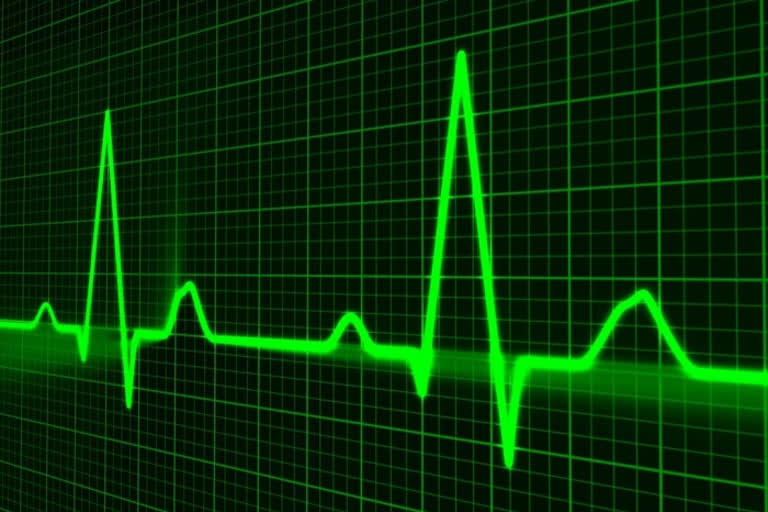Jerusalem: A simple electrocardiogram (ECG) can identify hospitalised COVID-19 patients at high risk of death who might need intensive management, according to a study. The research shows that a prolonged QT interval on the ECG was an independent risk factor for both heart injury and one-year mortality. The QT interval refers to the electrical signal from the moment the ventricles or heart chambers contract until they finish relaxing and is measured in milliseconds. Patients with a prolonged QT interval are at increased risk for life-threatening arrhythmias -- heart rhythm disorders -- and cardiac arrest.
"An ECG is an inexpensive, non-invasive, easily attainable and widely available test applied in nearly all hospitalised patients," said study lead author Ariel Banai of Tel Aviv Sourasky Medical Center, Israel. "Our study suggests that a simple ECG tracing performed upon admission may help healthcare professionals to triage patients with COVID-19 and identify those in need of intensive care," Banai said.
An ECG records electrical activity as it travels through the heart. The information is displayed as a graph which is divided into sections according to the location in the heart. The study, presented at EHRA 2022, a scientific congress of the European Society of Cardiology (ESC), examined the association between QT prolongation and long-term mortality in patients hospitalised with COVID-19.
Also read: Fitbit Sense gets ECG app functionality in US and Europe
It also evaluated the relationship between prolonged QT interval and myocardial injury, a condition in which cells in the heart die. The researchers studies 335 consecutive patients hospitalised with COVID-19. All of them had an ECG upon admission. Patients were deemed to have myocardial injury if they showed reduced function on an echocardiogram, which is an ultrasound of the heart, and had troponin in the bloodstream.
Troponin is a protein found only in heart cells. When the heart is damaged, for example in myocardial injury, troponin is released into the bloodstream. Patients were divided into two groups according to the duration of the QT interval: 109 patients (32.5 per cent) had a prolonged QT interval and 226 patients (67.5 per cent) had a normal QT interval. Compared to those with a normal QT interval, patients with a prolonged QT interval were older (70 years on average versus 63 years).
As many as 78 patients with QT prolongation had myocardial injury compared to 110 with a normal QT interval, the researchers said. Prolonged QT was associated with a two-fold increased risk of myocardial injury after adjusting for age, co-existing conditions, and severity of COVID-19, they said. "Interestingly, among patients with myocardial injury half had no troponin in the blood, suggesting blood tests alone may miss a substantial number of patients with this heart problem," Banai said. At one year, 41 per cent of patients in the prolonged QT interval group had died compared to 17 per cent in the normal QT interval group, according to the researchers.
QT prolongation was associated with a 1.85-fold increased risk of dying within a year after adjusting for age, co-existing conditions and severity of COVID-19, they said. When patients were divided into four groups according to the presence of myocardial injury and QT prolongation, those with both conditions had a 6.6-fold higher likelihood of one-year mortality compared to patients without QT prolongation and no myocardial injury.
"In our study, one-third of hospitalised COVID-19 patients had a prolonged QT interval," Banai said. "These patients were generally older and sicker but even after adjusting for these factors, prolonged QT interval was independently associated with worse survival," the researcher added.
PTI



